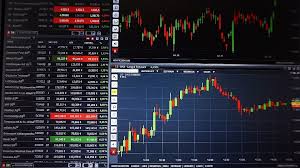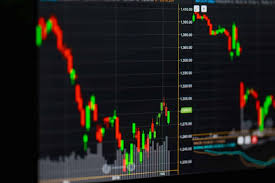
A Beginner’s Guide to Forex Trading
Forex trading, or foreign exchange trading, is the largest financial market in the world. Over $6 trillion is traded daily, offering incredible opportunities for those willing to learn. As a beginner, stepping into this expansive space can be both exciting and daunting. Many new traders encounter myths and misinformation that can lead to confusion and frustration. However, a structured approach can turn trading from a gamble into a disciplined strategy. In this guide, we will explore the essential aspects of Forex trading for beginners, including fundamental concepts, tips for success, and vital resources like beginner forex trading Trading Brokers in Vietnam.
Understanding the Basics of Forex Trading
Forex trading involves exchanging one currency for another at an agreed price. The ultimate goal is to speculate on currency price movements. Currencies are quoted in pairs, indicating how much of the second currency is needed to purchase one unit of the first. The most traded currency pairs include EUR/USD, GBP/USD, and USD/JPY.
Forex Market Participants
The Forex market consists of a variety of participants, including:
- Banks and Financial Institutions: Major players that facilitate currency transactions as part of their operations.
- Corporations: Companies involved in international trade, affecting currency demand through their operations.
- Retail Traders: Individuals looking to profit from currency fluctuations.
- Governments and Central Banks: Entities that regulate monetary policy and intervene in the Forex market to stabilize or influence their currency.
Choosing a Forex Broker
One of the first steps in starting Forex trading is selecting a broker. Consider the following factors when choosing one:
- Regulation: Ensure that the broker is regulated by a reputable authority, which provides a layer of security for your funds.
- Trading Platform: A user-friendly trading platform is essential for executing trades efficiently.
- Spreads and Commissions: Compare the costs associated with trading, including spreads and commissions, as they can significantly impact your profits.
- Customer Support: Good customer service can help you resolve issues quickly.
The Importance of Education
Education is paramount in Forex trading. Before risking real money, beginners should familiarize themselves with the market’s fundamental concepts. Many resources are available, such as:
- Online Courses: Numerous platforms offer Forex trading courses that cover various aspects of trading.
- Webinars: Live webinars hosted by experts can provide valuable insights and answer questions.
- Books: Read books on trading strategies, market analysis, and risk management.
- Demo Accounts: Most brokers offer demo accounts where you can practice trading without financial risk.
Developing a Trading Strategy
A solid trading strategy is essential for success. Every trader should have a plan that outlines their approach, including:

- Trading style: Define whether you’ll be a scalper, day trader, swing trader, or position trader.
- Risk Management: Set rules for how much capital you’re willing to risk on any single trade.
- Analysis Techniques: Decide whether you’ll use fundamental analysis, technical analysis, or a combination of both.
Understanding Risk Management
Effective risk management is crucial in Forex trading. New traders often underestimate the importance of protecting their capital. Here are some key points to consider:
- Use Stop-Loss Orders: To prevent significant losses, always set stop-loss orders in your trades.
- Limit Leverage: While leverage can amplify profits, it can also increase losses. Use leverage wisely and never risk more than you can afford to lose.
- Diversify Your Portfolio: Avoid putting all your funds into one currency pair; diversification helps spread risk.
The Power of Technical and Fundamental Analysis
Successful traders often rely on both technical and fundamental analysis:
- Technical Analysis: This technique involves analyzing price charts and indicators to predict future price movements based on historical data.
- Fundamental Analysis: This approach focuses on economic indicators, news events, and geopolitical factors that can influence currency values.
Practicing with a Demo Account
One of the best ways for beginners to learn Forex trading is through practice. Most brokers provide demo accounts that simulate real trading environments. This allows you to:
- Test your trading strategy without risking real money.
- Get familiar with the trading platform.
- Gain experience in executing trades and developing confidence.
Stay Informed About Market News
Forex markets can be impacted by various factors, such as economic data releases, political events, and market sentiment. Staying informed about the latest news is vital. Utilize:
- Forex news websites.
- Economic calendars to track important events.
- News aggregators for real-time updates.
Continuously Improve and Adapt
The Forex market is constantly evolving. Successful traders embrace change and continuously seek to improve their skills. Consider the following habits:
- Keep a trading journal to analyze your trades and learn from mistakes.
- Stay updated with new trading strategies and tools.
- Network with other traders through online forums or social media.
Conclusion
Starting your journey in Forex trading can be both thrilling and challenging. By building a solid foundation of knowledge, developing a clear trading strategy, and practicing diligent risk management, you can improve your chances of success. While there will be ups and downs along the way, remember that consistent education and adaptation are key components of a successful trading career.